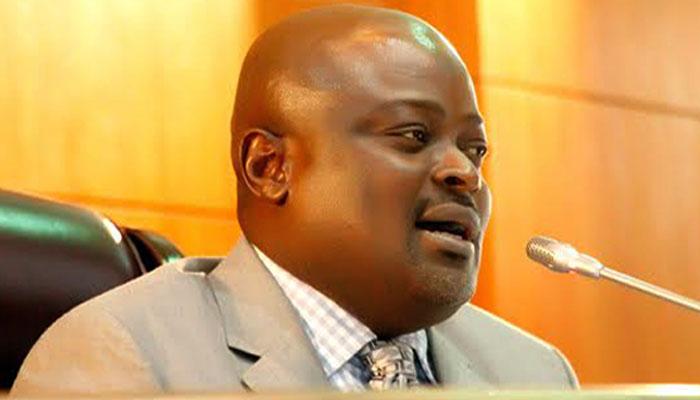
The impeachment of Mudashiru Obasa as Speaker of the Lagos State House of Assembly on Monday came as no surprise to many, given the controversies that have surrounded him in recent years.
Obasa, who has represented Agege Constituency 1 since 2007, was accused of gross misconduct and abuse of office. A staggering 90% of lawmakers in the House voted for his removal. He was replaced by his deputy, Mojisola Meranda, a former chief whip and representative of Apapa Constituency 1. Mojeed Fatai was elected as the new deputy speaker.
A source close to the situation hinted that Obasa’s impeachment was tied to his growing political ambitions, specifically his 2027 governorship bid. The embattled lawmaker reportedly began building political structures across Lagos, including 20 local government areas and 37 local council development areas (LCDAs), under the banner of the “Obasa Support Group.” This move was seen by many as an attempt to position himself for the 2027 governorship race, which led to increasing tensions within the political establishment.
Political analysts further suggest that Obasa’s ambitions escalated when he proposed a controversial bill aimed at granting the Assembly the power to remove the Chairman of the Lagos State Independent Electoral Commission (LASIEC), with a push to pressure Governor Babajide Sanwo-Olu into signing it. His strained relationship with the governor and alleged disrespect for his leadership reportedly caught the attention of the Governor’s Advisory Council (GAC), who raised concerns with President Bola Tinubu.
Sources revealed that Obasa’s disregard for party directives and his defiance of the leadership of the APC contributed to his downfall. He reportedly instructed lawmakers to purchase festive gifts for his political movement, prompting further criticism. Despite these warnings, Obasa continued to challenge the status quo, leading to his eventual impeachment.
In the aftermath of Sanwo-Olu’s second term election in 2023, tensions between the governor and the House of Assembly escalated, particularly after the assembly refused to clear some of the governor’s commissioner nominees. This decision was perceived by many as a sign of the growing rift between Obasa and Sanwo-Olu. There were also rumors that the governor supported an alternative candidate for the position of speaker, further exacerbating the discord.
Obasa’s removal came shortly after the Lagos State Anti-Corruption Coalition filed a petition with the Economic and Financial Crimes Commission (EFCC), accusing him of spending N17 billion on the construction of a gate to the Assembly. Obasa vehemently denied the allegations, calling them politically motivated.
While Obasa denied any personal ambition for the governorship, stating that his focus was on strengthening the APC in the state, political observers remain skeptical. Many believe that his ambitions for the Lagos governorship in 2027 played a significant role in his ouster, especially as rival factions within the APC jockey for power ahead of the upcoming election.
Dayo Kayode, a public affairs commentator, described Obasa’s impeachment as a result of internal power struggles within the APC, calling it “part of the shenanigans for 2027.” He added that the timing of the impeachment raised questions, especially since the same party had previously shielded Obasa from similar accusations.
The impeachment marks the end of a turbulent chapter in Obasa’s political career and could signal significant shifts within the Lagos political landscape as the 2027 governorship race draws closer.
Comments